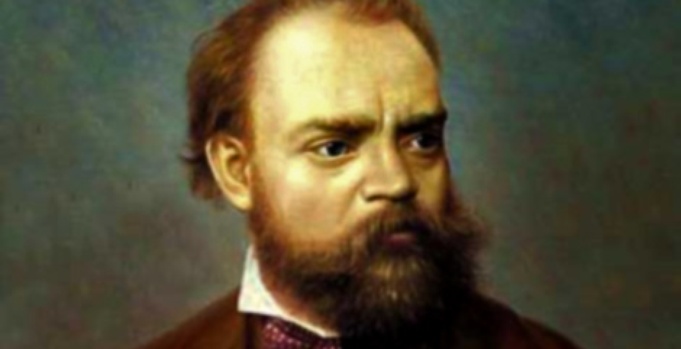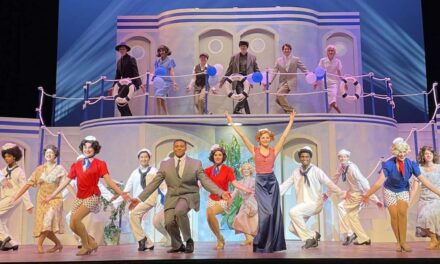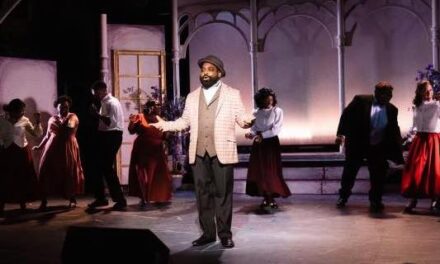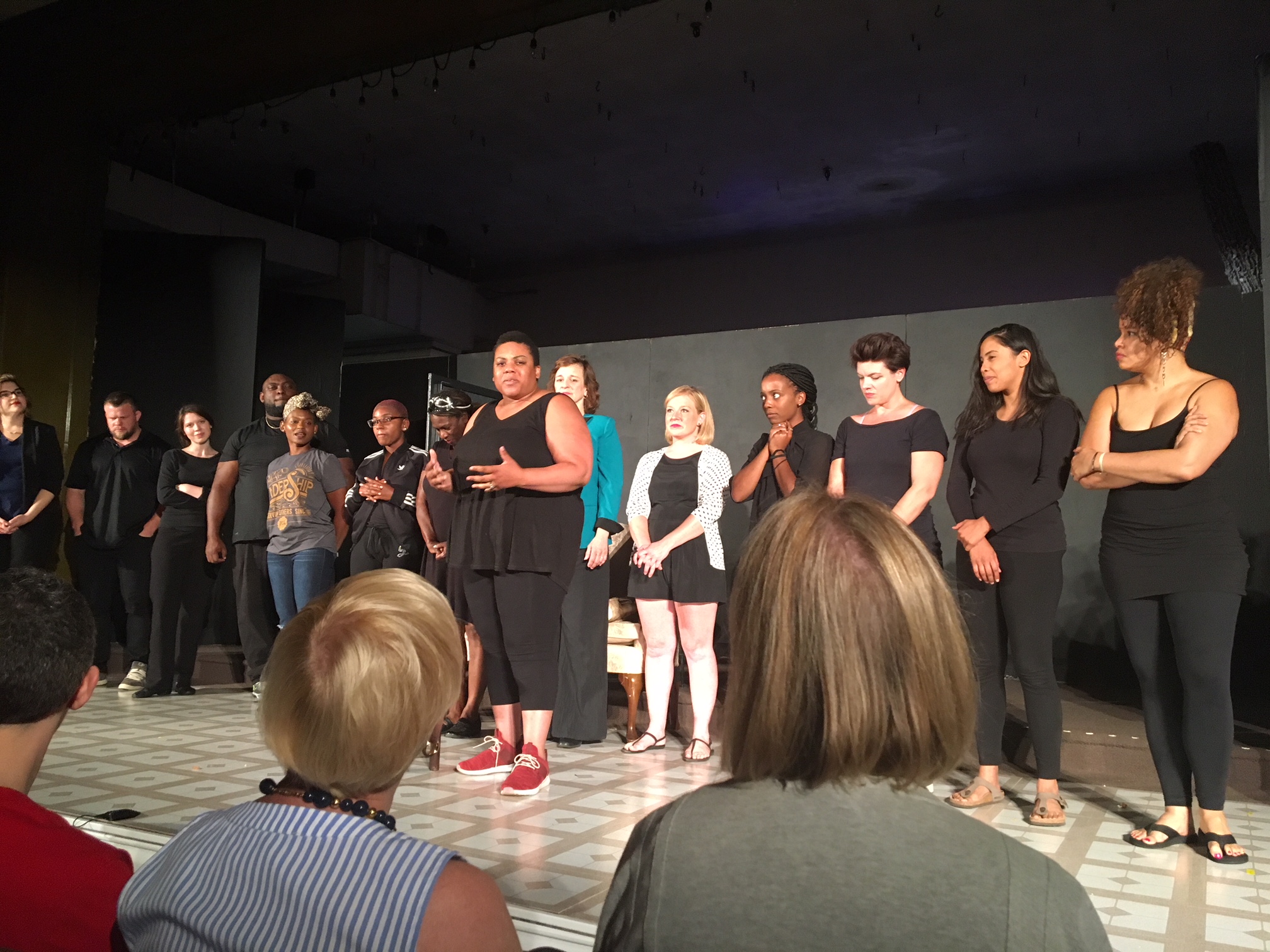Composer AntoninDvořák
Serenades
Louisville Orchestra Music without Borders Series
Bob Bernhardt, conductor
Review by Annette Skaggs
Entire contents copyright © 2015 Annette Skaggs. All rights reserved.
As the rains finally gave way to a spectacular lavender colored sunset, the gymnasium at Adath Jeshurun Temple filled with an audience excited for the next installment of the Louisville Orchestra’s Music without Borders Series, Serenades. Maestro Bob Bernhardt chose two lovely examples: Dvořák’s Serenade for Wind Instruments, Cello and Double Bass, Op. 44 in D minor and Tchaikovsky’s Serenade for Strings Op. 48 in C Major.
As the Maestro astutely observed, both composers were highly influenced by W. A. Mozart. For example, Antonin Dvořák, after a trip to Vienna in which he heard Mozart’s Serenade in B-flat for Wind, came home and completed the Serenade for Wind in D minor within 14 days. Upon hearing the Serenade on the whole, you can certainly attest that some of the notation certainly bends to a Mozart sound. But there is no denying that Dvořák encapsulated a Slavonic style too. It was during this composer’s “Slavic” period that he produced Serenade, Slavonic Dances and Czech Suite, among others.
With a score calling for winds, horns, cello and double bass, it makes for an intimate concert. Suited for salons and small concert-halls, it was perfect for the evening’s surroundings.
The first movement starts just as it is marked, “quasi Marcia”: in a March. The second movement, Minuetto, featured elegant lines. I especially liked how the instruments would have a line of rolling notes, creating a “catch me if you can” echo among them. In the Andante con moto, third movement, the bassoonists provided an elegant pulse on which the winds, brass and strings built upon. Within the finale there was no question that Dvořák was influenced by the Czech dances as the whole of the movement felt open and excited before returning to the first movement’s March melody.
I would like to say congratulations to the Louisville Orchestra’s Contrabassoonist for having a chance to shine. This particular instrument was not very prominent during Dvořák’s time and was added later when one could be found.
Tchaikovsky’s Serenade for Strings, Op. 48 in C Major was written at the same time as some of his other famous works: Romeo and Juliet and the 1812 Overture, to name two.
Pezzo in forma di sonatina, the first movement, is exactly what it sounds like: a sonatina that starts out slow but builds into stirring chord structures. I did catch a hint of the second violins going sharp at one point, but I think that was just a slip as it faded quickly. One of the techniques that are strewn throughout the Serenade is the use of double-stopping, which takes finesse and diligence. Our Orchestra absolutely nailed it every time.
In the Maestro’s introduction to Tchaikovsky’s Serenade he likes to tell the audience a little bit about the piece. He shared that the second movement, the Valse, was famous in its own right. He was right. Upon the first few measures I could hear some audience members humming ever so lightly along with it. I can’t say that I was as familiar with this movement as I am the first, but I could have sworn that part of the Valse melody is used in the early 20th century song “Let Me Call You Sweetheart”. In any case, yes, it was a lovely waltz.
Within the third movement, Élégie, the violas are given a chance to revel in the melody line, soon accompanied by the cellos and basses. And revel they did, providing beautiful and seamless legato lines full of lushness.
Maestro Bernhardt called the forth movement a “barnburner”: Finale, Tema russo. While I wouldn’t necessarily consider it a barnburner, it certainly has its share of fireworks and excitement. The cellos are given some of the most interesting and challenging notes of the evening and were sumptuous. There is a variation and then return to the first movement theme that ties the whole of the movements together into a harmonic and melodic bow.
Bravo Tutti
Serenades
November 18 @ 7:30 pm – Adath Jeshurun
November 20 @ 7:30 pm – Jeffersontown Community Center
November 21 @ 7:30 pm – The Ogle Center at IUS
The Louisville Orchestra
(502) 587-8681
Louisvilleorchestra.org
Annette Skaggs is a heavily involved Arts Advocate here in Louisville and freelance professional opera singer who has performed throughout Europe, St. Louis, Cincinnati, Boulder, Little Rock, Peoria, Chicago, New York and of course Louisville. Aside from her singing career she has been a production assistant for Kentucky Opera, New York Opera and Northwestern University. She has a 25+ year knowledge of the Classical Arts.





